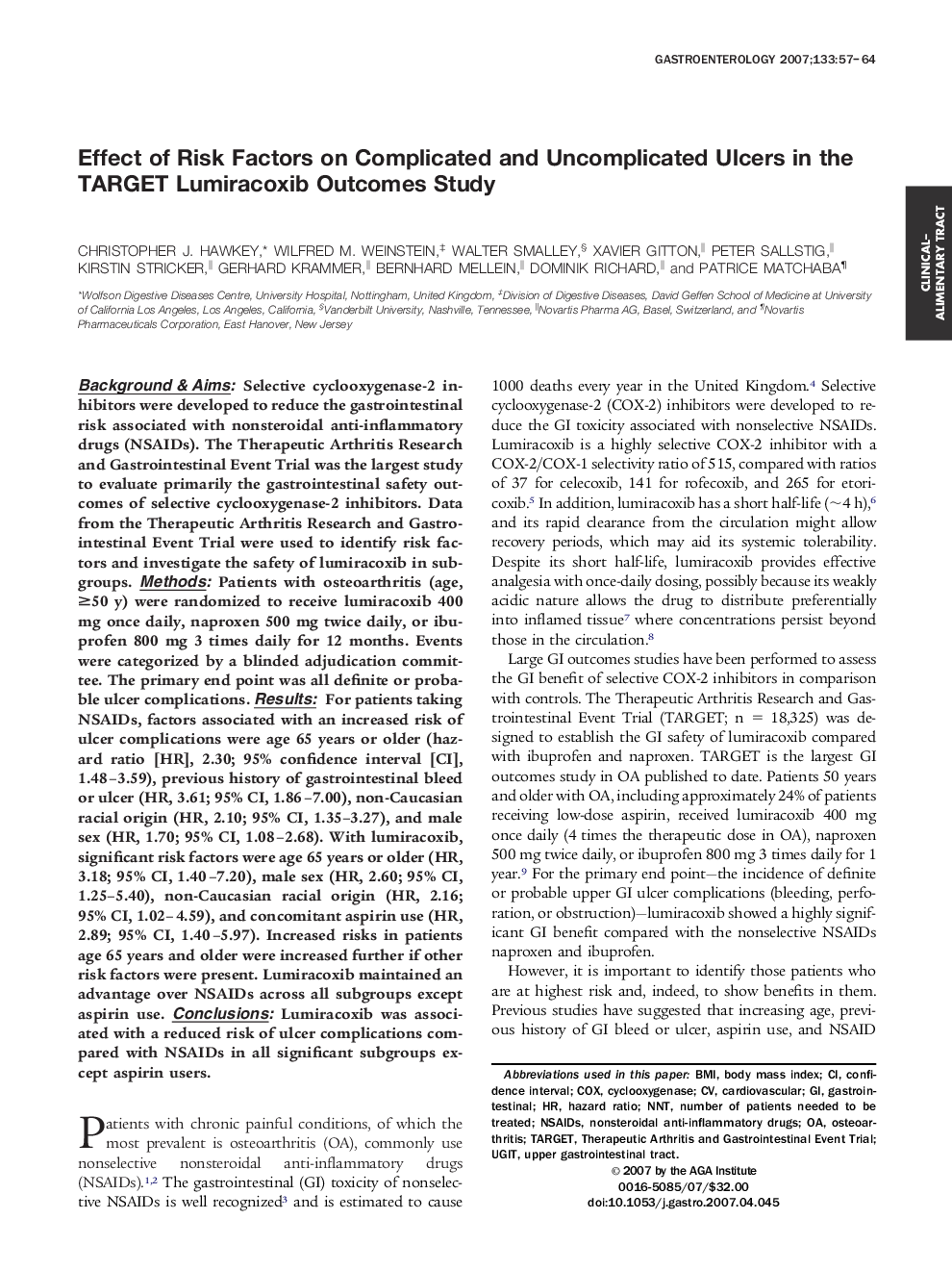| Article ID | Journal | Published Year | Pages | File Type |
|---|---|---|---|---|
| 3296757 | Gastroenterology | 2007 | 8 Pages |
Background & Aims: Selective cyclooxygenase-2 inhibitors were developed to reduce the gastrointestinal risk associated with nonsteroidal anti-inflammatory drugs (NSAIDs). The Therapeutic Arthritis Research and Gastrointestinal Event Trial was the largest study to evaluate primarily the gastrointestinal safety outcomes of selective cyclooxygenase-2 inhibitors. Data from the Therapeutic Arthritis Research and Gastrointestinal Event Trial were used to identify risk factors and investigate the safety of lumiracoxib in subgroups. Methods: Patients with osteoarthritis (age, ≥50 y) were randomized to receive lumiracoxib 400 mg once daily, naproxen 500 mg twice daily, or ibuprofen 800 mg 3 times daily for 12 months. Events were categorized by a blinded adjudication committee. The primary end point was all definite or probable ulcer complications. Results: For patients taking NSAIDs, factors associated with an increased risk of ulcer complications were age 65 years or older (hazard ratio [HR], 2.30; 95% confidence interval [CI], 1.48–3.59), previous history of gastrointestinal bleed or ulcer (HR, 3.61; 95% CI, 1.86–7.00), non-Caucasian racial origin (HR, 2.10; 95% CI, 1.35–3.27), and male sex (HR, 1.70; 95% CI, 1.08–2.68). With lumiracoxib, significant risk factors were age 65 years or older (HR, 3.18; 95% CI, 1.40–7.20), male sex (HR, 2.60; 95% CI, 1.25–5.40), non-Caucasian racial origin (HR, 2.16; 95% CI, 1.02–4.59), and concomitant aspirin use (HR, 2.89; 95% CI, 1.40–5.97). Increased risks in patients age 65 years and older were increased further if other risk factors were present. Lumiracoxib maintained an advantage over NSAIDs across all subgroups except aspirin use. Conclusions: Lumiracoxib was associated with a reduced risk of ulcer complications compared with NSAIDs in all significant subgroups except aspirin users.
